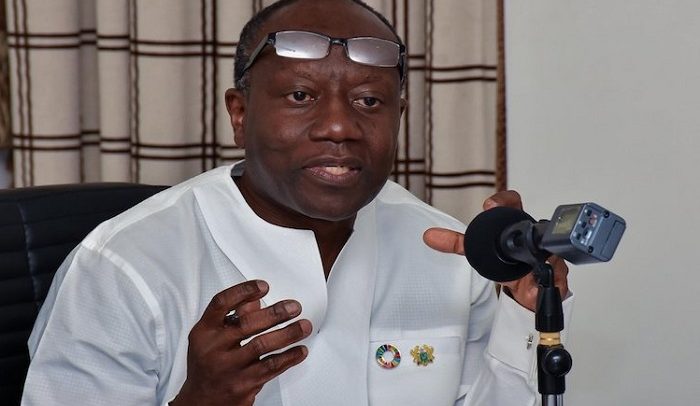Ken Ofori-Atta
The Government of Ghana’s decision to set up the Agyapa Gold is in line with the Minerals Income Investment Fund (MIIF) Act, 2020, Act 1024.
MIIF indeed, authorises the creation of the Agyapa transaction, meaning Government did not breach any law as far as the Agyapa deal is concerned.
Section 3 grants the MIIF to among other things: (a) create and hold equity interests in a Special Purpose Vehicle in any jurisdiction in furtherance of its objects, and the Special Purpose Vehicle shall be free to operate as a regular, commercial company; including the listing of the Special Purpose Vehicle on any reputable stock exchange that it considers appropriate;
It can also assign or transfer all or any of its rights to minerals income to a Special Purpose Vehicle in furtherance of the objects of the Fund, including through allocation agreements and stability agreements.
Also, Section 3 allows the Fund to assign or transfer all or any of the minerals equity interests held on behalf of the Republic to a Special Purpose Vehicle in furtherance of the objects of the Fund and grant security over or otherwise encumber the property and assets of the Fund.
Subject to compliance with the Investment Guidelines provided for in section 39, the Act allows the MIIF to invest in, purchase, maintain, divest from, sell or otherwise realise assets and investments of any kind; and borrow and raise money from domestic and international financial markets in accordance with section 76 of the Public Financial Management Act 2016 (Act 921).
Section 4 of Act 1024 clearly spells out the Functions of MIIF which include: For the purposes of achieving the objects of the Fund, the Fund shall: (a) manage, deal in and invest minerals income accruing to the Republic received by the Fund; (b) hold and manage minerals equity interest of the Republic and exercise all rights related to the minerals equity interest; (c) disburse twenty percent of minerals income received by the Fund to the Minerals Development Fund; (d) seek the best possible financial returns on investments having regard to internationally recognised best practices for
According to the Act, in the performance of its functions, the Fund is to:
(a) act in accordance with the Investment Guidelines issued under section 39; (b) operate in accordance with sound commercial principles and shall use its best endeavours to ensure that the Special Purpose Vehicle operates in a similar manner; and
(c) be accountable to the Minister for the performance of its functions under this Act. (3) In the performance of its functions, the Fund or a Special
Purpose Vehicle shall not provide credit to the Government, public enterprises, private sector entities or any other person or entity.
The Management of the Fund
Under Section 5, the Act clearly indicate that: (1) The governing body of the Fund is a Board consisting of
(a) a chairperson; (b) the Chief Executive Officer of the Fund; (c) a representative each from the following Ministries not below the rank of a Director: (i) Ministry of Finance; and (ii) Ministry of Lands and Natural Resources; (d) three other persons nominated by the Minister;
(e) the Commissioner for Domestic Tax Revenue Division of the Ghana Revenue Authority; and
(f) a Deputy Governor of the Bank of Ghana nominated by the Governor of the Bank of Ghana .
What Ken Ofori-Atta Said At The Vetting:
Finance Minister-designate, Ken Ofori-Atta, indicated that government did not in any way breach any law as far as the Agyapa deal is concerned.
Mr Ofori-Atta during his vetting in Parliament on Thursday, March 25, 2021, says government, at every stage of the transaction ensured that the Agyapa deal was above board.
“I do not feel that we broke any law by the way the procurement was done under transaction,” he said.
Mr Ofori-Atta was the Finance Minister during the first term of President Nana Akufo-Addo’s Government.
According to him, as Finance Minister, he had no interest to breach the 1992 constitution, stressing that it was not part of his mandate.
Mr. Ofori-Atta recounted that when Government undertook the transaction on the $2.25 billion Euro-bond, there was brouhaha over the matter and they had to go to Commission on Human Rights and Administrative Justice (CHRAJ) to be cleared of any wrong doing.
According to him, the objections of some people to the deal were not in the best interest of Ghana.
By Melvin Tarlue


